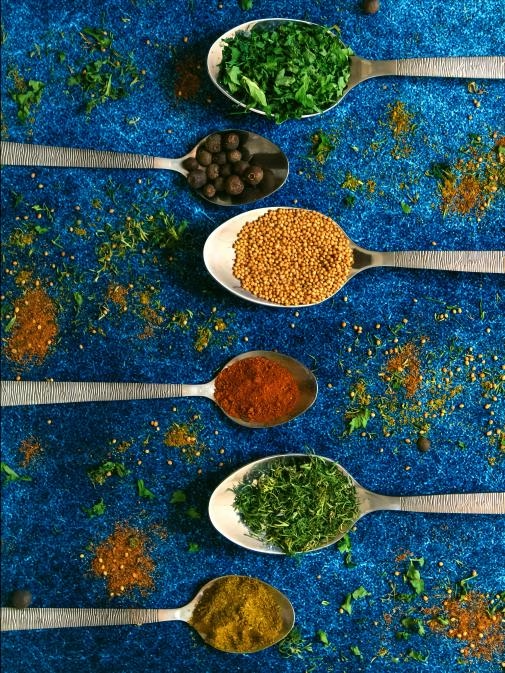Oil, salt, sauce, vinegar, and other seasonings are essential for home cooking. Improper storage can easily lead to moisture and loss of flavor, potentially causing gastrointestinal discomfort. Many people believe that the best way to store all ingredients, including seasonings, is to refrigerate them.
However, not all seasonings are suitable. Different seasonings have different storage methods depending on their ingredients. They can generally be categorized as follows:
No refrigeration required, not necessarily refrigerated, and absolutely required.
No refrigeration required
- Powdered seasonings: salt, sugar, garlic salt, chicken powder, etc.
- Dried spices: pepper and dehydrated, ground, or whole spices.
- Oils: olive oil, sunflower oil, salad oil, sesame oil, sesame oil, camellia oil, coconut oil, etc.
Dried spices
Due to their high hygroscopicity, dried seasonings should not be refrigerated. Simply store them in airtight containers in a cool, dark place.
If refrigerated, the seasoning will become damp due to the temperature difference when taken out for use. Dried spices, such as pepper and Sichuan peppercorns, are easily degraded by moisture and high temperatures. They should be stored in airtight containers in a cool, dry place, away from stoves, ovens, and refrigerators.
Cooking Oil
Cooking oil will solidify or become cloudy at low temperatures. If refrigerated and taken out repeatedly, condensation may form inside the container, creating moisture and promoting bacterial growth.
It is recommended to purchase small bottles or portion them into smaller bottles. Store in a cool, dry place and use within two months if possible. Honey will crystallize if its temperature drops below 20°C or its moisture content falls below 20%. While this does not affect the flavor, it will be less convenient to use.
Refrigerate as needed
- Strong alcohol and vinegar
- Tomato sauce (use within one month if possible)
- Peanut butter and creamy spread (consume quickly, using a clean spoon)
- Dried herbs, fresh herbs
- Strong alcohol and vinegar
Since alcohol and acetic acid inhibit the growth of bacteria, mold, and other microorganisms, strong alcohol and vinegar can be stored in a cool, dark place. However, some commercially available flavored alcohol and vinegar products may contain other ingredients to reduce the alcohol and acetic acid concentrations. For these products, it is recommended to refrigerate them after opening.
Tomato sauce
Tomato products, such as ketchup, can be stored in a cool, dark place for 2 weeks to a month at room temperature, due to the natural acidity of tomatoes, which has antibacterial properties. Dried herbs that have been dried and dehydrated can be stored in glass jars in a cool, dark place. Fresh herbs can be chopped and packaged in small packages and stored in the freezer, or mixed with olive oil to make spiced oil bricks and frozen.
Must be refrigerated.
- Soybean-based condiments: tempeh, miso, soy sauce, etc.
- Salted and fermented condiments: shrimp paste, fish sauce, mirin, etc.
- Soy sauces with high water content: oyster sauce, barbecued pork sauce, etc.
- Condiments with spices: chili sauce, chili oil, XO sauce, curry sauce, etc.
- Sauces containing peanuts, eggs, or milk: such as shacha sauce, mayonnaise, salad dressing, etc.
- Condiments containing fruits and vegetables: jam
Soybean-based condiments
Soybean-based condiments ferment faster after opening, causing changes in flavor and color. Therefore, refrigeration is recommended to slow down the fermentation process.
Salted and fermented condiments
Condiments that are salted, fermented, or have high water content should also be refrigerated after opening in hot and humid environments to prevent spoilage or mold.
Condiments containing spices
Condiments containing spices, peanuts, eggs, milk, or fruit and vegetable ingredients are prone to bacterial growth and spoilage at room temperature. They may also ferment and become sour upon exposure to air, so they should be kept at low temperatures.
Condiments should not be stored near gas stoves or high-temperature sources.
Many people keep condiments near gas stoves for easy access during cooking. However, be aware that when a gas stove is heating, the surrounding area heats up, accelerating oxidation of the oils in the condiments and fostering bacterial growth. The steam generated during cooking also dampens the condiments, increasing the risk of mold.
If you notice mold in condiments, discard them and do not use them again.
If you notice mold on condiments, do not use them again. Some people may think that removing visible mold means they can continue to eat the food. However, as long as mold is present, the fungus may have penetrated deep into the food. Therefore, discard moldy condiments and do not use them again. If you accidentally eat moldy food, it may cause gastrointestinal discomfort at the very least. Long-term or excessive intake of mycotoxins may increase the risk of cancer.


Leave a Reply